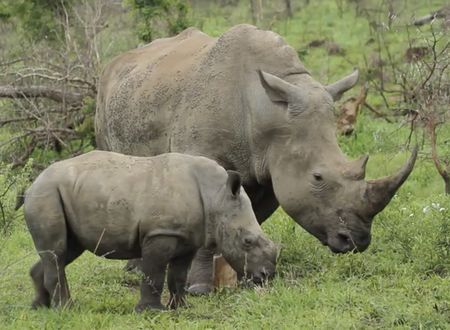I found this story mentioned in Devi Bhagavatam about Maya (illusion) very interesting. I read it first a while ago and have felt an urge to share it in the past. Doing it now finally.
Verbatim, from The Devi Bhagavatam Retold by Ramesh Menon (if you like it, you should consider buying the book and treat yourself with many more interesting tails of wisdom and devotion depicted beautifully by the author).
“The power of Maya is incomprehensible to the wisest of the wise. Once, I was seized with an irresistible urge to see my Lord Vishnu. I set out from Satyaloka, my vina in my hand, and went by Rishi-marga to Sweta dwipa, the blessed island where Narayana dwells. I went singing my favourite Sama hymns.
Soon, I walked into Vishnu’s presence, and my heart was full. He was illustrious and four-armed, with the Sudarshana chakra in one hand, the Saringa, the Kaumodaki and the Panchajanya in the others. His presence was of a great, fresh rain-cloud, and his skin was smoky blue, the hue for which he is known as Shyama. He wore fulvid silk, and the great ruby, the Kaustubha, shone like a red star on his deep chest, next to the Srivatsa curled there. He wore a sparkling crown on his head.
But, Muni, he was not alone. Lakshmi was with him. She covered herself quickly, when she saw me, and ran into the next room. But ah, Vyasa, I clearly glimpsed her breast before she could go. I offered Narayana the garland of wild flowers I had brought for him, and said, ‘Lord, why did the Devi leave as soon as she saw me? I am a Rishi, and a master of my desires.’
Vishnu said to me, ‘As Lakshmi was, a woman should never stay before another man, whoever he may be. Narada, the greatest Rishis are deluded by Maya. Why, you love music so much. Isn’t music sensual, aren’t the sweetest songs also Maya’s enchantment? Maya is mysterious and subtle, Narada. No one has ever conquered her.’
I was amazed. I said, ‘What is this Maya truly like, Lord? Show her to me.’
‘Maya is everywhere, Narada. Her nature is the three gunas; she is the foundation of all existence. But, if you would see her, come with me.’
He summoned brilliant Garuda, with just a thought, and we climbed astride the great eagle. Vishnu spoke no word to Garuda, but he knew where to go. Swift as the wind, he flew us across continents, over mountains and jungles, rivers laid like threads upon the earth, villages and cities of men, fields like emerald carpets, tanks and lakes, herds of deer and elephant, prides of lions and lone panthers sawing up at us, to a place near Kanauj.
There was a crystalline lake there, overgrown with the most vivid lotuses. All sorts of water birds swarmed on its banks and swam on its clear surface. The sounds of goose and teal, cormorant and crane rose like a quaint symphony around us. It was a charmed place, where teeming flocks of pink flamingoes fished.
Garuda set us down softly, and Vishnu took my hand and said, ‘Come, Narada, let us bathe in this lake before we enter Kanauj. You go first, and I will follow you.’
I gladly set aside my deerskin and my vina, and walked into the water. I tied my hair up in a kondai, pulled up some kusa grass that grew conveniently near, and performed achamana. The water was cool and invigorating, and scented sublimely with the lotuses that grew on it. I plunged in, Vyasa, and began to bathe. After my first immersion, I turned and I saw Vishnu gazing at me with a strange look in his eye. I felt the queerest tingling in my body, and when I looked down at myself, I cried out. Vyasa, I had turned into a woman! I stood thunderstruck and saw Vishnu pick up my vina and my deerskin. Smiling, he mounted Garuda and flew into the sky.
As he went, it seemed he took my memory with him, for I no longer remembered who I was. I forgot all about Narada and his vina, why, I even forgot his Lord Narayana. In a daze I came out of that lake, mother-naked, and ravishing, too, and sat on the velvet mosses on the lake’s side, gazing out over the breeze-swept water, wondering who I was and how I had got here.
Then, I heard horses’ hooves behind me, and turned to see a handsome king, staring at me. He called to me, ‘Lovely one, who are you? Are you a Nagina or an Apsara, a Gandharvi or a Devi? Ah, whoever you are, do you belong to any man? If you don’t, marry me, for I have lost my heart to you!’ ” said Narada,’ Muni Vyasa told Janamejaya,” says Suka to the hermits of the Naimisa vana.
THIRTY-NINE
“VYASA WENT ON, ‘NARADA CONTINUED HIS AMAZING STORY, O JANAMEJAYA. “That king’s name was Taladhvaja. And when he proposed to me so forthrightly, I thought earnestly for a moment, and said, ‘I don’t know whose daughter I am. I do not know who my father and mother are. All I know is that a dark man brought me here, to this lake. He, also, has gone away and I do not know where. My lord, I don’t even know my own name. I am an orphan, and I am lost and helpless. Will you help me?’
Taladhvaja asked a golden palanquin to be fetched, some fine silk clothes for me, and he took me home with him to his palace. Muni, you will understand, I no longer knew who I was. Within the week, on an auspicious day, that king took me for his wife with all ceremony. Taladhvaja named me Saubhagya Sundari, and I was dearer to him than his life.
Day and night, Vyasa, he wanted just to be with me, and he was a handsome Kshatriya, and we spent most of our time at passionate lovemaking. We would both drink quantities of heady varuni, and we ranged the kingdom together, city and forest, lake’s green bank and wooded hill, in the flush of our love. I knew only that king’s ardour, and remembered nothing of the Brahmagyana, the Vedas or Shastras. Thus, my friend, twelve years flitted by as if they were just some weeks.
One day, I realised I was pregnant. Taladhvaja was beside himself with joy. He spent all his time cosseting me, bringing me anything I wanted, whether it was a piquant pickle made of mangoes brought from a distant kingdom, or exotic sweets made of milk and honey. He brought me lotuses for my hair, and silks obtained from ships that came from across the sea.
In time, I was delivered of a son. Taladhvaja’s delight knew no bounds, and he named that child Viravarma. Two years passed, and then I became pregnant again. Again, a fine prince was born to us, and we called him Sudhanva. Why, in time, O Vyasa, I gave birth to twelve boys, and spent my days raising them. Our lives were perfectly happy, and soon our princes came of age, and we found suitable brides for them. Before we knew it, the king and I had become grandparents. Our palace was full of bright voices and laughter, and all the things that are most precious to human happiness.
Of course, I grew increasingly entangled in attachment. No trace of who I really was remained, either upon my person or in my mind. Only when any of my children were ill did I suffer. But soon, our sons and their wives fought among one another, and then I felt anguish, and was helpless against time’s ravages that all the living must endure. I sank deeper and deeper into the bondage of samsara. Why, I grew proud thinking of what a good wife I was, and what an able mother, what a kindly mother-in-law, and loving grandmother. I also thought of myself as a sage queen, who had her husband’s ear.
But, fate moves on ineluctably, and sweeps everything before her. My husband had an implacable enemy in the king of a neighboring kingdom. One day, this Kshatriya arrived with his legions to attack Taladhvaja. Kanauj was besieged, and my sons and grandsons rode out to defend their city. The battle was swift and savage; all my children were slain. My husband barely escaped with his life, and the enemy rode away having achieved the revenge he wanted for an old slight.
I went wailing to the battlefield; grief ripped through me, and I could hardly stand it. I flung myself across my sons’ and grandsons’ dismembered and, sometimes, decapitated bodies, and my screams rang across that bloody field. Just then, Vishnu arrived there in the guise of an ancient and splendid Brahmana. He said to me, conversationally, ‘Why are you crying, gracious woman? You seem to belong to a good family, and to be a woman of wealth besides. Your tears are caused by moha. You are too attached, you are deluded. Go and bathe at some sacred tirtha, and offer til and tarpana for your dead. Stop tormenting yourself, beautiful queen. Come, come with me. I will take you to an auspicious tirtha not far from here. If you bathe there, you will find peace.’
I rose and followed that lustrous Brahmana blindly, and with me was my stricken husband Taladhvaja. I could not for the life of me tell why I went, except that I was desperate, and somehow felt sure the Brahmana would ease my anguish. We arrived at the lake called Pumitirtha.
The Brahmana said to me, ‘Go and bathe now. Just think that you have lived a million lives before this one. In each one, you had sons and daughters and grandsons. Tell me, for which of them will you grieve? All this world is an illusion, dear lady, more than you know. Embodied souls inherit suffering, anguish, and little else. Enter the water, it will bless you with peace.’
He stood on the bank, with a faint smile on his lips. My eyes swimming with tears, I walked into that lake. As I immersed myself, strange calm washed over me, in tide, as if a sea of peace swept me away from my grief. I rose spluttering from the water, and lo, I was Narada again! The Lord Vishnu was also himself, dark blue, and clad in fulvid yellow. He stood smiling at me, and cried, ‘Ah, Narada, you are taking your own time with your bath. Come on now, hurry a little. I have stood here for so long.’
The king Taladhvaja was astounded to see Narada Muni, with tangled jata piled high over his head, wade out from the lake into which his queen has gone for a bath. For a time, he had quieted his grief over our children’s death. But now, he began to wail loudly, ‘My love, where are you? Ah, first I have lost my sons, and now my queen is snatched from me. Have you drowned yourself in grief? Or does a shark or crocodile lurk under this lake? This is not the time to abandon me, my queen. How will I bear my sorrow without you at my side? Ah, my life is over. If only men were allowed to commit sati when their wives died!’
Now Vishnu spoke gently to the king, saying, ‘Haven’t you ever read the Shastras, O King? That you succumb to sorrow like this. Haven’t you learnt that the union of wives and sons in this world is momentary, like people crossing a river in boats meeting? All that happens in this world is by fate. It is no use crying. This is where you found your queen, and now you have lost her here, as well. What time gave you, it has taken from you. You never really knew who she was. It is like the tale of the crow and the tal fruit: you gained her magically, and so, too, you have lost her.
Don’t cry anymore, Taladhvaja. Go home, and know that time rules you. No man can conquer time. Not for all your tears will your queen return to you. Go back to your city, and rule wisely. Tread the path of yoga, and find peace for yourself. Everything in this life is transient, only the Truth never changes. It is rare to be blessed with a human birth, O Kshatriya. A man should do everything in his power to attain moksha.’
That king, who was in the grip of such shock, grew calm at what Vishnu said to him, though he still saw Narayana only as a bright Brahmana. Taladhvaja bathed in the lake and returned to his city. There, he slowly gave his power into the hands of his grandsons that still lived, and then took to sannyasa in the forest, where one day he did gain nirvana.
When Taladhvaja left Vishnu and me beside the magic lake, the Lord began to laugh heartily. I said to him, ‘Hari, Maya is powerful indeed. But, Lord, how did I lose my memory so entirely, when my soul was my own all the time? For, how else could I remember every moment of Saubhagya Sundari’s life as I do? Yes, every moment! And I blush to think of many of them.’
Vishnu said, ‘There are more dreams and lives in your body than you realise, Narada. They all exist together, for the mind is a miraculous thing, and it is much more than any man realises. The mind itself is maya. Muni, when you sleep, do you remember what you dream? Yet, while you are asleep all that happens in your dreams is real enough, isn’t it? All lives are dreams of one kind or another. They are all the work of Maya, and Maya is inscrutable, even to me.”
With that, we mounted Garuda again and flew back to Sweta dwipa,”
Sriman Narayan









Comments & Discussion
15 COMMENTS
Please login to read members' comments and participate in the discussion.